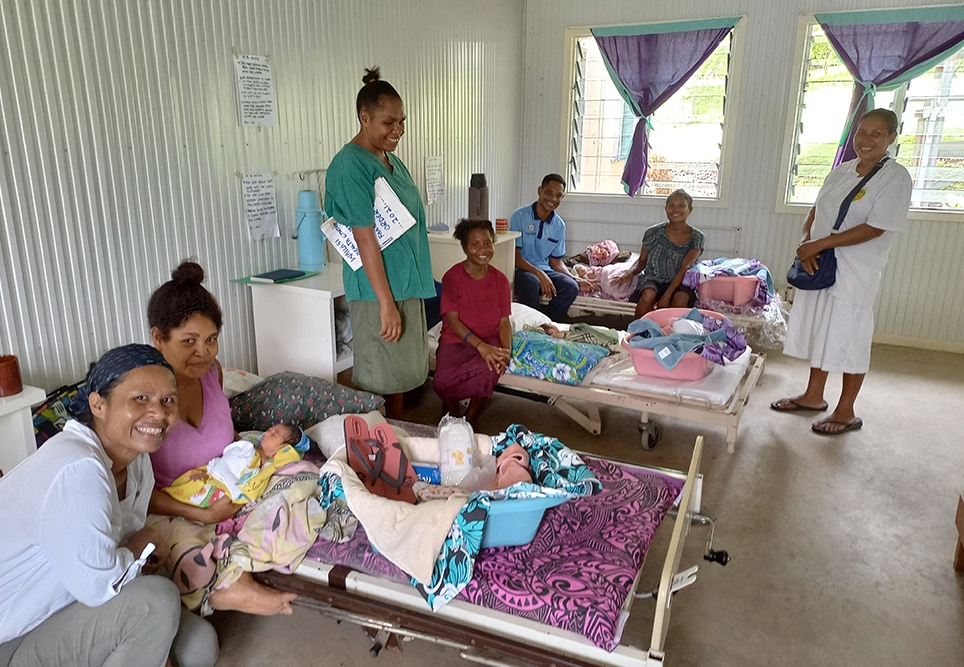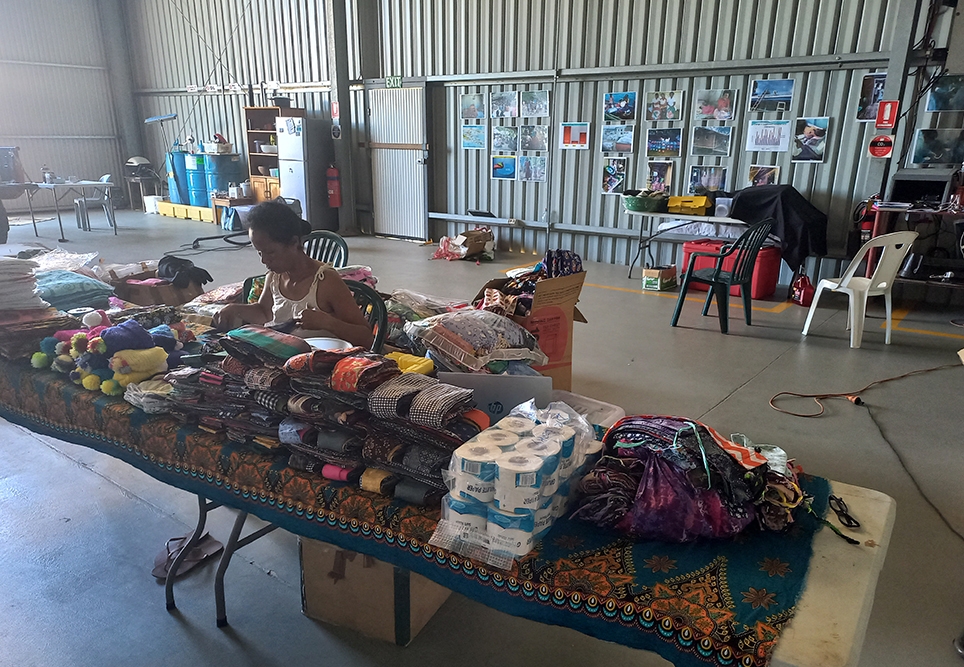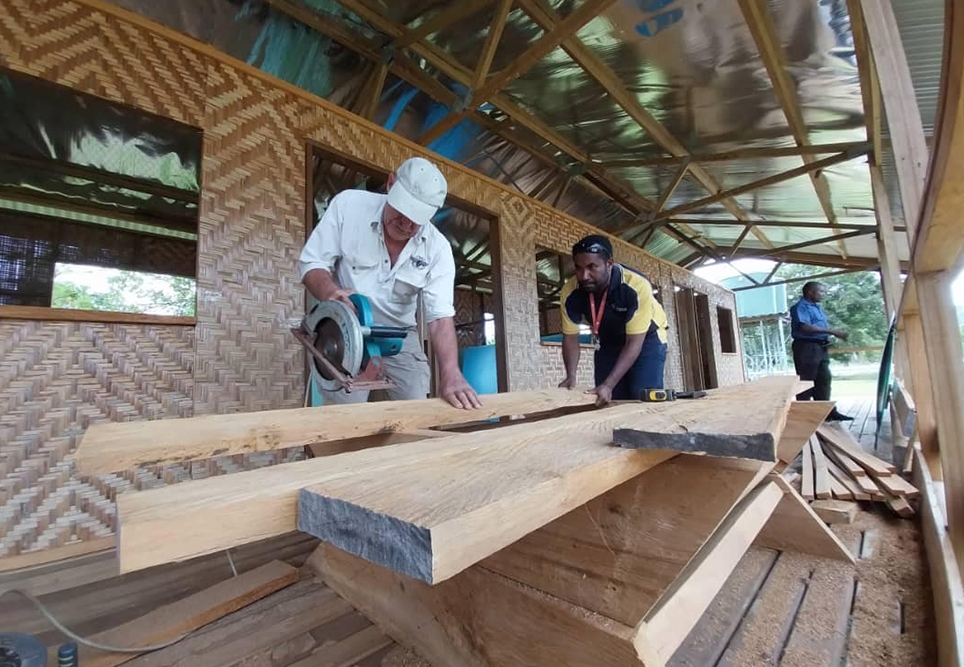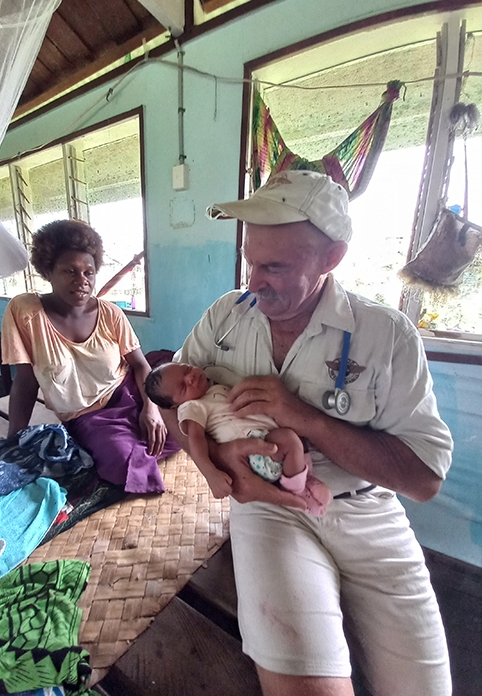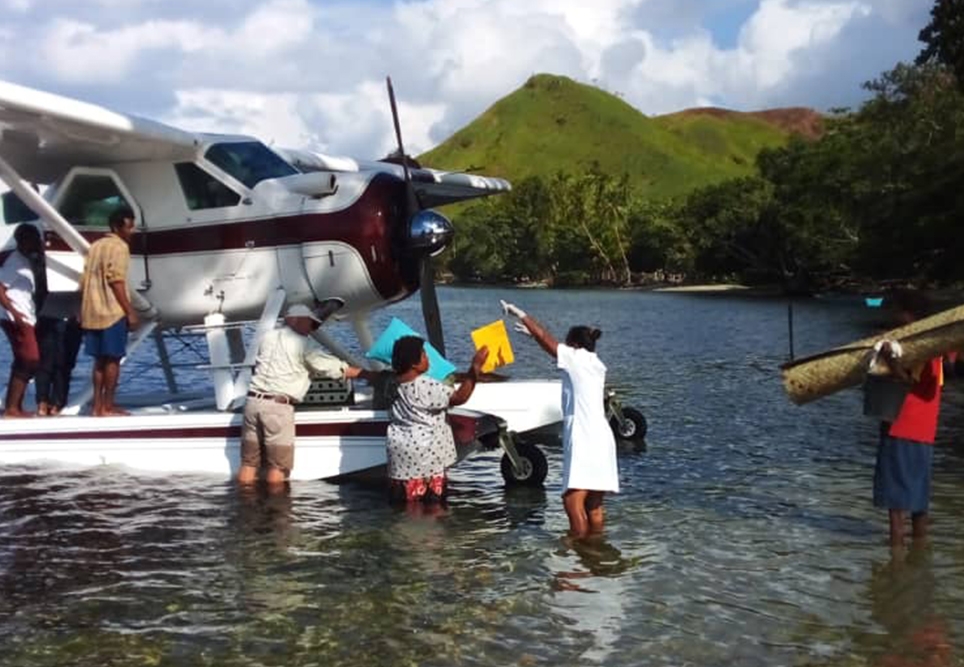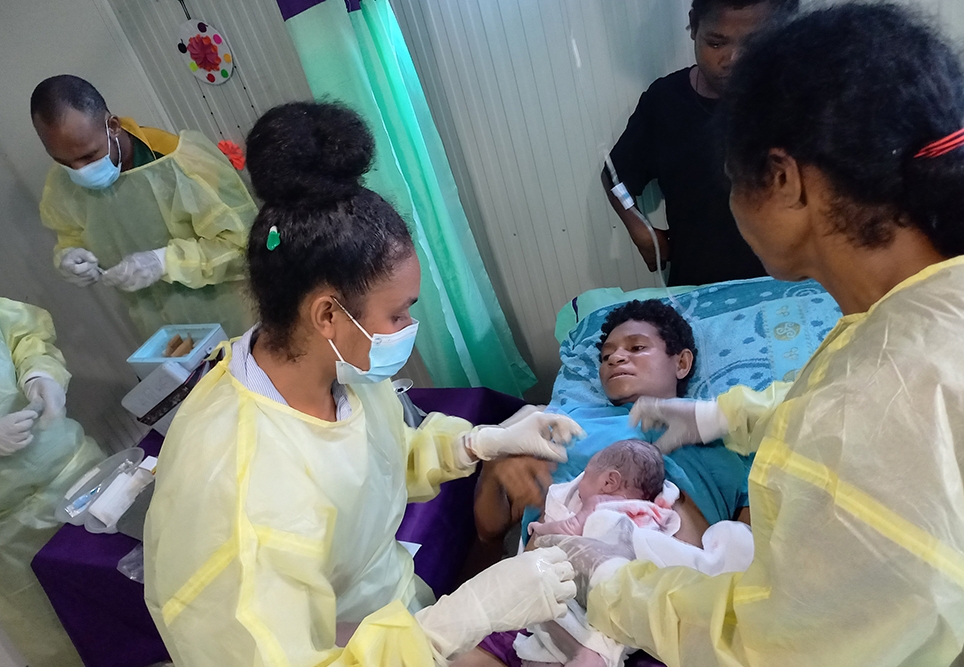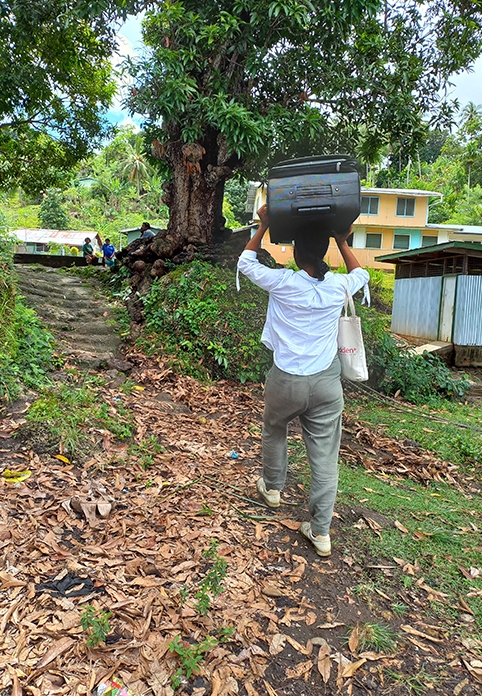This site may not work properly using older versions of Edge and Internet Explorer. You should upgrade your browser to the latest Chrome, Firefox, Edge, Safari, or any other modern browser of your choice. Click here for more information.
Your Stories
This is where we tell your stories, cover topical issues and promote meaningful initiatives.
Baby bundles of success in PNG
While building a school in Papua New Guinea, carpenter Barry Kirby became aware of the region’s incredibly high rate of preventable maternal and newborn fatality. 12 years and two degrees later, he returned as a doctor. Now 10 years into his new career, Barry and RN Kila Dobo are seeing real change through the work of their not-for-profit charity, Hands of Rescue.
If you empower local people to explore local challenges and come up with local solutions, you can make an enormous difference. That’s the motto of Dr Barry Kirby AO and RN Kila Dobo.
The pair’s Baby Bundle initiative has encouraged mothers to choose a supervised delivery. The Baby Bundle is a plastic baby bath filled with products including cloth nappies, sanitary items and toiletries, baby clothes, a sarong, and thongs, and it can be collected by women if they elect a supervised delivery at the local health centre.
“We started our incentive scheme at three health centres initially, which I must admit sounded a crazy thing to do at the time,” says Barry.
“But the mothers immediately responded and supervised deliveries skyrocketed by over 100%. Mothers and health staff were happy, so we rolled it out to 15 health centres. Twelve months later, we had an 85% increase in supervised deliveries across those centres.
“But the most rewarding result was we had gone from eighteen recorded deaths to just four in those health centres over the same period. I don’t know anywhere else in the world they’ve done that.”
To date, through their not-for-profit charity, The Hands of Rescue, the pair has delivered more than 8,000 Baby Bundles to 25 health centres.
The Baby Bundles are just one example of finding a practical solution to the barriers that mothers have told the pair about.
When local women shared the practical reasons why they were giving birth in villages rather than at their local health centre, the pair sprang into action.
“Some of the villages are so remote, it can take days to walk to a health centre, or they have to use a boat,” says Kila. “To deal with that issue, we are continuing to build and commission new mothers’ waiting houses, attached to health centres, where pregnant women can come early and can live while they are waiting for their babies to be born.
“We’ve renovated countless labour wards and constructed one TB ward. The total renovation of a tiny health centre at Wailagi on Goodenough Island is an example of the community taking ownership of a project.”
For years, that health centre had no light, two beds (one not working properly) and a roof that was caving in. Water dripped on the women in labour. Now they have a two-bed delivery room and a four-bed post-natal ward, complete with an ensuite and a laundry.
During construction, the women of the village and health staff collected and delivered sand and gravel for the concrete, while the men dug trenches and helped erect and assemble the frame. Even the children got involved, carrying rocks for the septic absorption trench.
“It was fun and a great community spirit permeated the entire project.”
“It was up in 13 days. That was 12 months ago. The morale of the staff remains very high and we’ve not had one emergency call from that new centre so far,” says Barry.
“People need to take ownership,” says Kila.
“As we pointed out to those men, ‘This is for you, your wives, your sisters.’ To get the reaction we need in communities, though, we have to build up trust. To gain trust you have to do what you say you are going to do, that’s how people start to trust. And that’s what we did.”
Barry and Kila’s solutions-focused thinking has also formed the foundation of their Safe Mother Programme, their Flying Doctor Service, education and training programs for health-centre staff, involving the community in decision-making – and more recently focusing on promoting positive male role models.
This has included a TV series, ‘It takes a village’, which encourages men to be supportive partners who encourage their wives to have the baby in a health centre.
The series uses storytelling to illustrate the benefits of seeking care early and promotes the active role communities can play in maternal health, for example by identifying the risks and danger signs early.
Barry would like a backer to support the second series, which he says will go a long way towards addressing ingrained cultural attitudes.
“Barry and I love our work, going out and helping the women,” says Kila. “We do what needs to be done. This also includes training the local staff to do the same and I hold the local staff in high regard.
“We install solar lights, running water and fly screens, curtains for mothers’ privacy, scrub down dirty labour wards, fix drip stands, repair [the] labour ward bed… whatever is needed to make the place mother-friendly and where staff can perform their best… If a mother was to suffer or die from a preventable death, it’s possible it could have been a simple something with a simple practical solution.”
Barry, who is also the pilot of the plane, the engineer and the cleaner, agrees.
“A rural GP out here can’t just be trained in medicine,” he says. “Come to think of it, my background as a tradie was a perfect pathway.
“We live in the aircraft hangar and take no wages for ourselves,” he says. “All this work we do is made possible through the support of donations from PNG and Australia.”
For more information visit www.thehandsofrescue.org.au
Interested in sharing your experience of working in remote health? Is there a topic you’d like to read about? Submit an enquiry with your story or suggestion.
